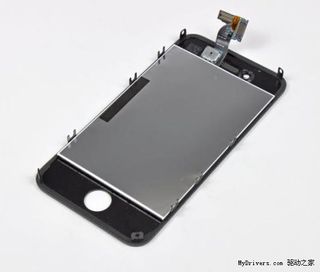Analyst: iPhone 5 and LTE could boost Verizon over AT&T
Verizon's comprehensive 4G LTE network could be its key

It seems as if it was just last week when we were reporting about Verizon's continued LTE expansion – up to 371 total markets, as of mid-August.
Compare that to AT&T, which serves around 50 markets or so with LTE coverage, and it's pretty clear to see which of the major carriers is already off to the races for next-gen service deployment.
With the launch of Apple's iPhone 5 right around the corner – coupled with the expectation that this will be the first Apple smartphone to offer 4G LTE connectivity – there's been chatter among pundits for some time now that the iPhone 5 will find more success as a Verizon device than an AT&T one.
With customers waiting as long as they have for their first chance at speedier, more comprehensive connections on their iPhones, it stands to reason that they would likely find more interest in a carrier that has more of a national oomph for overall 4G LTE connectivity.
But don't take our word for it.
Weighing in
While AT&T's been able to find considerably more success in total iPhone sales versus its rivals – to the tune of one million extra iPhones sold in the second quarter of 2012 – that advantage might soon start to fade as a result of Verizon's push toward 4G LTE.
"As of the end of 2Q12, Verizon's LTE network covered 230 million POPs, more than all the other carriers in the U.S. combined," said Jefferies & Co. analyst Thomas Seitz, as reported by AllThingsD's John Paczkowski. "We believe this network advantage could lead to a share shift towards Verizon, primarily at AT&T's expense."
Get daily insight, inspiration and deals in your inbox
Get the hottest deals available in your inbox plus news, reviews, opinion, analysis and more from the TechRadar team.
However, the situation isn't as clear-cut as it appears at first glance.
On the positive side (for Verizon), a number of AT&T customers who purchased more than nine million phones in the second half of 2010 are just about to leap off of their mandatory contracts – which gives them the ability to jump ship with a new smartphone, if they so desire.
But just because Verizon enjoys an advantage in technology doesn't necessarily mean that an influx of new subscribers is a done deal.
Verizon, after all, was beaten to the punch by AT&T for selling the iPhone itself.
Although many suspected that Verizon's first foray into iPhone sales would destroy AT&T's established iPhone user base, the exact opposite occurred: AT&T gained 1.4 million subscribers instead of losing the one million that predictions were calling for.
In other words, AT&T's used to its boat being jiggled a little bit by competitors when it comes to the iPhone; no holes yet, however.
Via AllThingsD
Most Popular

